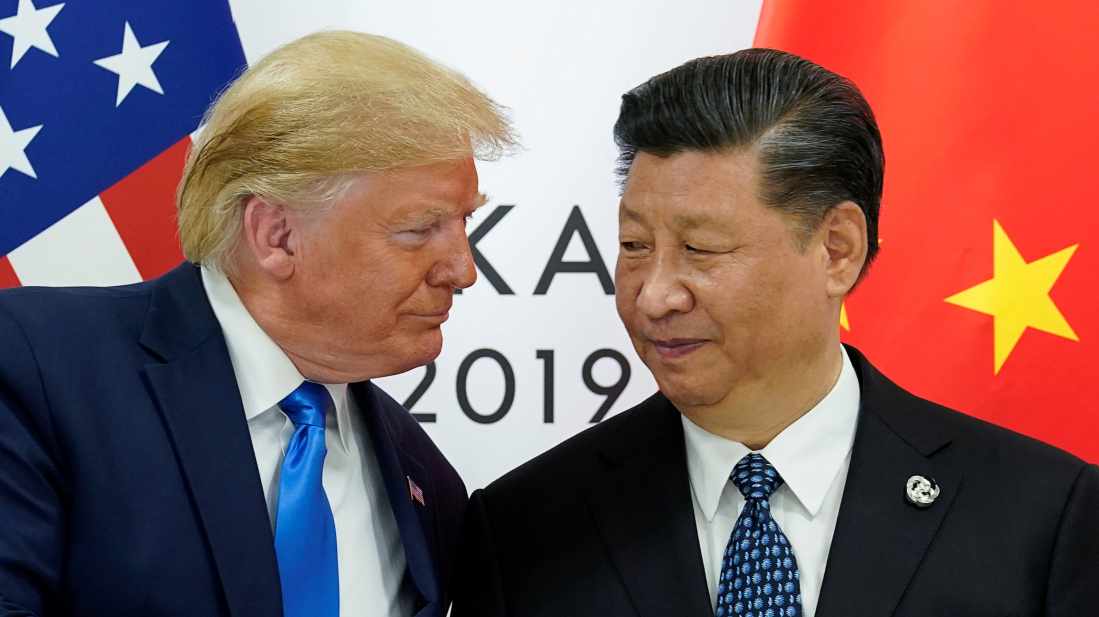Pentagon threatens to label Anthropic ‘supply chain risk’ over AI limits
The Pentagon has threatened to designate artificial intelligence firm Anthropic as a “supply chain risk” amid a dispute over the military use of i...

U.S. President Donald Trump is set to meet Chinese President Xi Jinping next week during a visit to Asia, the White House confirmed on Thursday, ending speculation after recent tensions over trade.
White House Press Secretary Karoline Leavitt told reporters that President Trump will depart for Malaysia late on Friday night. His trip will also include stops in Japan and South Korea, with the meeting with President Xi scheduled for next Thursday following Trump’s address at the Asia-Pacific Economic Cooperation (APEC) CEO Summit.
“On Thursday morning local time, President Trump will hold a bilateral meeting with President Xi of the People’s Republic of China before returning home,” Leavitt said.
The President’s itinerary begins on Sunday with a meeting with Malaysia’s Prime Minister Anwar Ibrahim and a working dinner with leaders of the Association of Southeast Asian Nations (ASEAN). He will then travel to Tokyo on Monday to meet Japan’s new Prime Minister Sanae Takaichi on Tuesday.
On Wednesday, Trump heads to South Korea, where he will meet President Lee Jae Myung, deliver keynote remarks at a luncheon for business leaders on the sidelines of the APEC summit, and later attend a U.S.–APEC leaders’ working dinner.
Tensions between Washington and Beijing have intensified since early October, when China significantly expanded restrictions on exports of rare-earth minerals. Trump swiftly threatened retaliatory tariffs and other measures, but in recent days has sounded more optimistic about achieving a trade agreement.
“I think we’re going to come out very well, and everyone’s going to be very happy,” Trump said on Thursday, striking a more positive tone than his top trade and finance officials, who are in Asia to ensure the meeting with Xi — the first of Trump’s second term — proceeds as planned.
Trump added that the first issue he intends to raise with President Xi will be fentanyl. Washington has long accused Beijing of failing to prevent the export of precursor chemicals used to produce the drug, which has driven overdose deaths in the United States. China, in turn, has rejected the accusation and accused Washington of using the issue to “blackmail” Beijing.
The White House has cited the flow of these chemicals from China as one of the reasons for increasing tariffs on Chinese imports.
“The first question I’m going to be asking him about is fentanyl,” Trump said. “I’m putting it right at the top of the list.”
U.S. Ambassador to NATO Matthew Whitaker said China has the power to bring an end to Russia’s war in Ukraine, arguing that Beijing is enabling Moscow’s military campaign.
Austria’s Janine Flock won the gold medal in the women’s skeleton event at the Milano-Cortina 2026 Winter Olympics on Saturday.
Iran’s Supreme National Security Council Secretary Ali Larijani said the United States could evaluate its own interests separately from those of Israel in ongoing negotiations between Tehran and Washington.
U.S. Secretary of State Marco Rubio on Sunday (15 February) called it “troubling” a report by five European allies blaming Russia for killing late Kremlin critic Alexei Navalny using a toxin from poison dart frogs.
Ukrainian President Volodymyr Zelenskyy said on Saturday that Russia’s decision to change the leadership of its delegation for upcoming peace talks in Geneva appeared to be an attempt to delay progress.
The Pentagon has threatened to designate artificial intelligence firm Anthropic as a “supply chain risk” amid a dispute over the military use of its Claude AI model, according to a report published Monday.
Representatives of Ukraine, Russia and the United States are set to meet in Geneva for a third round of trilateral negotiations aimed at ending the nearly four-year war, even as both sides intensify military pressure on the ground.
The Prime Minister, Mark Carney, announced on 16 February that the Honourable Janice Charette has been appointed as the next Chief Trade Negotiator to the United States.
Cuba’s fuel crisis has turned into a waste crisis, with garbage piling up on most street corners in Havana as many collection trucks lack enough petrol to operate.
Day 10 of the Milano Cortina 2026 Winter Olympics delivered high-stakes semifinals, dramatic finishes and classic podium moments across Milan and the Italian Alps. Photographers captured split seconds of symmetry before puck drops, explosive turns on the ice and triumphant celebrations.
You can download the AnewZ application from Play Store and the App Store.

What is your opinion on this topic?
Leave the first comment